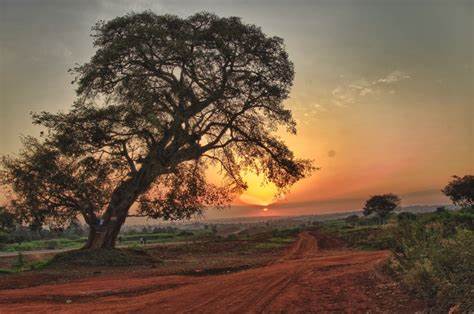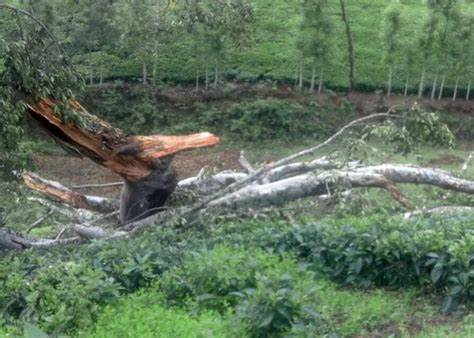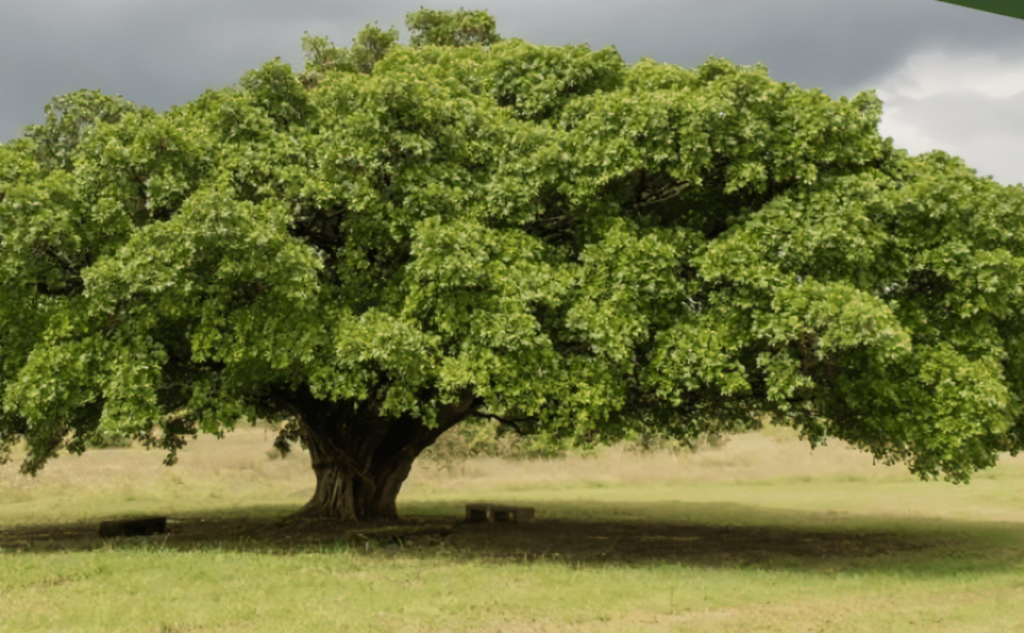
In 2015, some elders of the Agikuyu’ abstained from sex for nine days as they prepared for a ceremony to cleanse the tree which is considered to be very sacred by the community.
The Mugumo tree is over 200 years old.
The tree lost one of its branches in a strong wind. To some it was just wood like any and so they decided to use it as timber, but the elders of the community were angered by the act of using the Mugumo tree for timber.
They said the Branch that broke off should have been left alone to be eaten by ants and never used as timber or at least the elders should have been called to pray.

The elders told Kenya’s Citizen TV that the tree is angry and that prayers would have at least stopped the tree from falling down.
Harisson Waithaka one who was among the elders at the scene of the incident said, ”This tree was cut at the top and so it is angry.”
Those who were present when the branch broke off should have called the elders so that we pray for the tree to stop it’s branches from breaking off. ”
Another elder said,” only old barren women can use the Mugumo as a firewood, nobody else. If a branch falls off it should be left alone to be eaten by Ants. ”
The elders slaughtered a Sheep as one way to cleanse the tree and the next step is that they will have to abstain from Sex for nine days to give enough time to find out if the tree is used for prayers or not.
Why Mugumo Trees Are Considered Sacred
Often associated with the identity of the Gikuyu culture in Kenya, Mugumo trees are known for their size, strength and power.
Mugumo Trees are also said to be the trees of Ngai, or the one God, who chose Mugumo trees as places to inhabit when descending from heaven to commune with the Gikuyu people as a section of the Gikuyu people believe.
The Mugumos were (and often still are) sanctuaries where spiritual rituals were conducted and where people brought gifts and food for Ngai.
Such trees are sometimes compared with church buildings as places where people can go to pray and invite Ngai, the owner and source of life, to bless their families and communities with “peace, abundant food, fertile women, healthy children and cattle”, according to Karangi .

Mugumo is an evergreen and a type of fig, whose wood is unusable for lumber or firewood. The tree can grow as tall as 90 metres, or 295 feet, in forest or savannah and is invaluable in conserving soil moisture and increasing soil fertility.
The Gikuyu people still use Mugumos for medicine, fruit, rain catchment, boundary markers, sanctuaries, fodder for cattle – especially during drought – and to hang beehives . In the past, the people would build rafts high in the branches as places of refuge from invading tribes, in particular the Maasai.
Because of a current Gikuyu emphasis on Christianity, Mugumos are the center of rituals less often than they once were for circumcision, fertility, to ask for blessings and rain, and for the changing of a traditional government from one ruling generation to the next .
Still, Karangi found during his fieldwork that the people continue to use their myths and songs as part of their cosmology, and key in their ‘religio-philosophical world’ is the Mugumo. There exists “a strong association between Christian and Mugumo prayers and rituals”.









![Festus Makori and Jerica Muthoni. [Lilian Chepkoech]](https://mkenyaleo.co.ke/wp-content/uploads/2024/04/Q16uLG6Y0KB9b14AiLHv6W3TOXDWD0bftwRfm4YQ-220x150.jpg)
